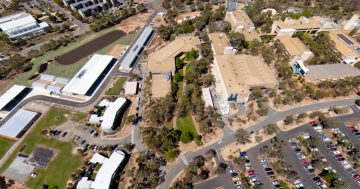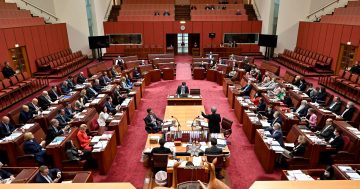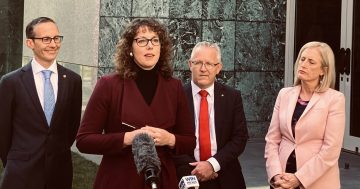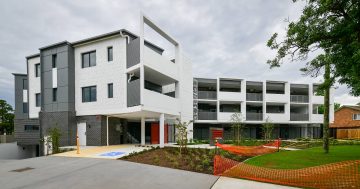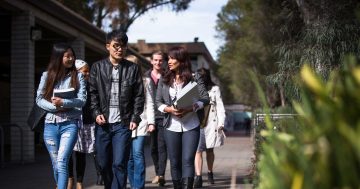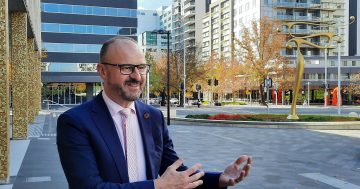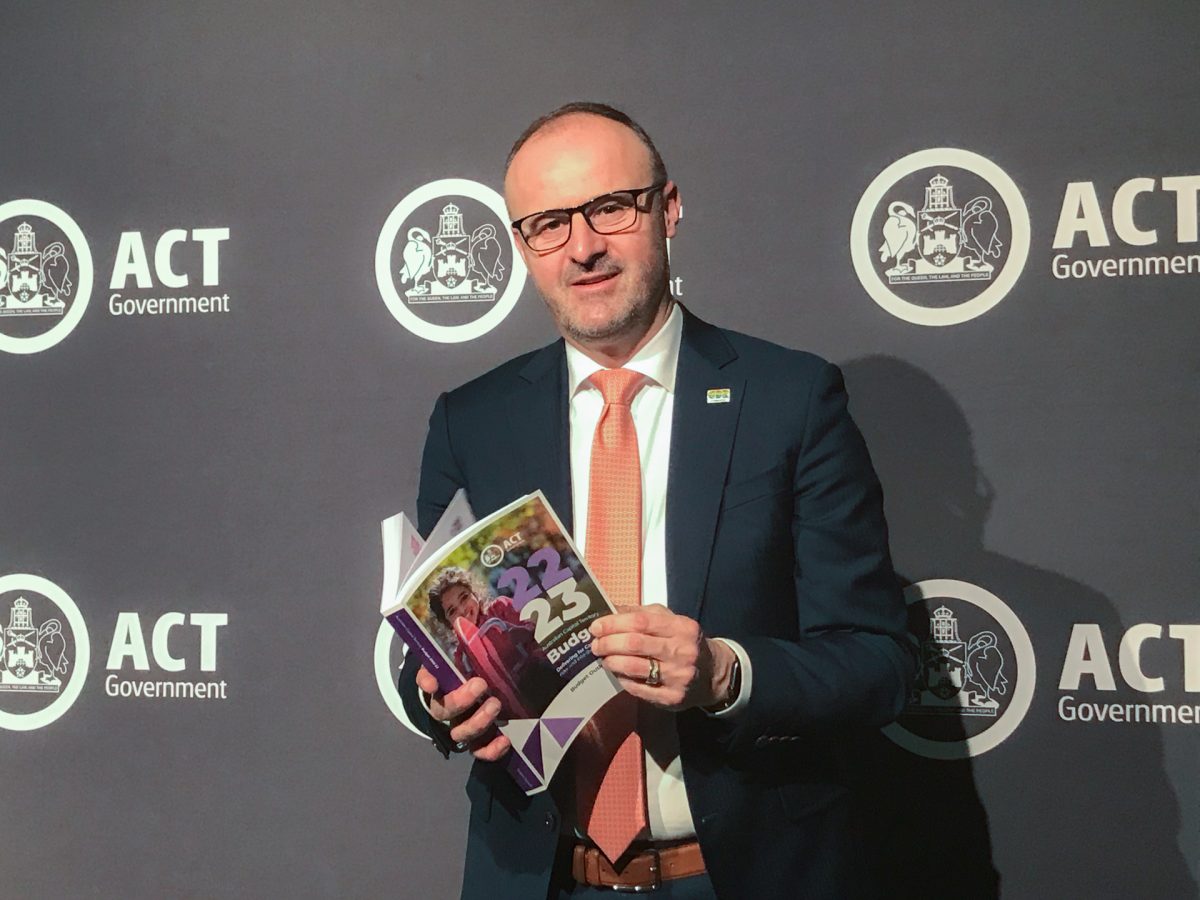
Chief Minister and Treasurer Andrew Barr has a new lease on political life after the election of the Albanese Government. Photo: Lottie Twyford.
A reinvigorated Chief Minister has dashed Liberal hopes that he would ride off into the sunset before the 2024 election, exposing an untested Labor leader to the heat of the campaign.
Andrew Barr confirmed at today’s Canberra Business Chamber Budget Lunch that he would be leading his team into the election in a speech peppered with excitement at the possibilities the new Albanese Government offered after the intransigence of the Morrison years.
He agreed afterwards that this should end speculation about his political future.
The transformed working relationship with the Federal Government also appears to cast doubt on previous plans Mr Barr had to hand over Treasury to one of his Cabinet colleagues late in the term.
“There’s no doubt that the change of Federal Government has provided a renewed working opportunity for me in that portfolio,” Mr Barr said.
“[Federal Treasurer] Jim Chalmers and I are old friends so I look forward to working with him.”
Mr Barr said he had not ruled out a ministerial reshuffle sometime later in the term, but the government was not there yet and his words are a far cry from when he spoke to Region after the 2020 election.
“We’ll have to look at the decisions everyone needs to make ahead of preselections and the election year about who’s running and who isn’t and that’s generally the time you reshape your ministerial team going into the election,” he said.
The new lease on political life comes after a period under the previous Federal Government that Mr Barr acknowledged was frustrating.
“The last term of the Morrison Government was heavy lifting for everyone and difficult,” he said. “There were a number of issues that we could not progress on.”
It also coincided with the draining political demands of the pandemic and suggestions that Mr Barr did not have another campaign in him.
Mr Barr expected the ACT would not be overlooked the way it had been under Morrison, particularly with former chief minister Senator Katy Gallagher as Finance Minister, Member for Fenner Andrew Leigh also having a senior economic role, and key Independent Senator David Pocock advocating for the Territory.
“When Zed Seselja is the only person waving a flag for you in the Federal Government, that’s a pretty dire situation and Canberra voters have expressed that view,” Mr Barr said.
He said it was a very different working environment now.
“It’s engaging … things are possible so it’s more exciting undoubtedly, the change of government has made my working life easier, but I think it has reinvigorated Canberra,” Mr Barr said.
In his speech, he pinpointed several areas where he expected progress to be made that would have important benefits to the ACT, including education and skills, GST revenue and health funding.
Mr Barr said the $4.2 million refreshing of Study Canberra to partner with the ACT’s tertiary education institutions would benefit from the Albanese Government’s education stance, declaring that the war on the university sector was over.
“That’s a fantastic thing for this city and this economy. It is absolutely fundamental,” he said.
“The Australian Government has moved beyond dumbing down our national economy and treating our higher education institutions like the enemy of the state is a massive difference.
“We’re going to back this in and support our tertiary education sector to expand and that’s one of the key avenues of economic growth and skills development, and this city’s economy diversifying and internationalising. That’s why it’s so important.”
Mr Barr said it was significant that the National Skills Summit would be held in Canberra because it meant that the national capital was back at the centre of public policy and that after being fobbed off by the previous government, a National Skills Agreement would finally be within reach.
In the short term, the ACT had already requested an increased allocation of nominations to the migration program to meet the acute skills needs of business in the Territory.
Mr Barr said the Morrison Government’s neglect of ABS population data, which had cost the ACT $190 million in GST funding, was also being remedied so the growing Territory received its fair share.
He had met with Mr Leigh, the minister responsible for the Bureau of Statistics, and senior statisticians to look at ways to ensure this doesn’t happen again.
Mr Barr said health took the biggest piece of the spending pie in the ACT – nearly a third – so restoring the Commonwealth’s share of health funding to 50 per cent, after dropping to 40 per cent under Tony Abbott and lifting to 45 per cent under Malcolm Turnbull, was also on the agenda.
“We have an aging population. In every state and territory, that demand for health services is only going to continue to grow, and this is a burden that needs to be shared by both levels of government,” he said.
Mr Barr said the change of federal government had fundamentally altered the nature of federal state and territory relations.
“I’m the most optimistic I’ve been about our economy and our city’s future,” he said.
“The alignment of the policy agenda of the Federal Government with the Territory Government is as close far as I’ve experienced it in 15 years of Territory politics. I fully recognise that right now, the onus is on both governments to deliver.”













